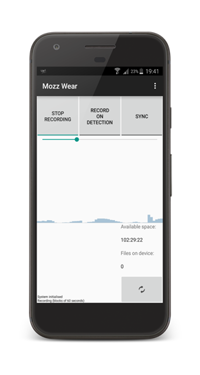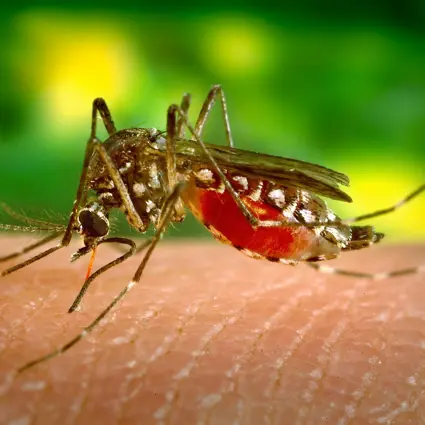A newly developed app could alert people to the presence of malaria-carrying mosquitoes by detecting their distinctive buzz.
Mosquito-transmitted diseases are responsible for an estimated one million deaths each year, of which the vast majority are concentrated in sub-Saharan Africa. Although global malaria cases have declined since 2010, they are now on the increase again. But only around 70 of the 3500 mosquito species are responsible for spreading malaria.
 The HumBug app (pictured) developed by a team of researchers at Engineering Science, Zoology and Kew Gardens, runs on a cheap mobile phone, analysing sounds in the environment and issuing a warning when mosquitoes are nearby. To develop the early warning system, the project team converted recordings of mosquito sounds into frequency features and trained an algorithm to learn the signature pattern created by mosquitoes in flight.
The HumBug app (pictured) developed by a team of researchers at Engineering Science, Zoology and Kew Gardens, runs on a cheap mobile phone, analysing sounds in the environment and issuing a warning when mosquitoes are nearby. To develop the early warning system, the project team converted recordings of mosquito sounds into frequency features and trained an algorithm to learn the signature pattern created by mosquitoes in flight.The project, led by Professor Stephen Roberts (Department of Engineering Science) and Professor Kathy Willis (Department of Zoology and Director of Science at Royal Botanic Gardens Kew), has shown that the app could detect the presence of mosquitoes from about 10cm away, depending on background noise.
The next phase of development is to improve the analysis so that it can differentiate between malaria-carrying species of mosquitoes from their more harmless relatives. The app should be able to learn the tell-tale audio signatures produced by different species based on variations in sound caused by wing size and shape.
“Hopefully this will save lives,” said Yunpeng Li, one of the research assistants working on the project. “If we can identify the species, we can tell people in areas where there is malaria that these mosquitoes are around and that they need to take care, to use bed nets and so on.”
The app has further development potential beyond warning people of nearby mosquitoes. Traditional mosquito surveys are expensive and time consuming and they put scientists in the field at risk of catching diseases. The new app could enable researchers to build up real-time maps of mosquito populations, and scientists in the field could identify mosquitoes more safely and easily.
The Humbug Project is funded by a Google Impact Challenge award and the ORCHID project.
Research Group
DPhil student Ruth Fong selected as AI Fellow
Student

